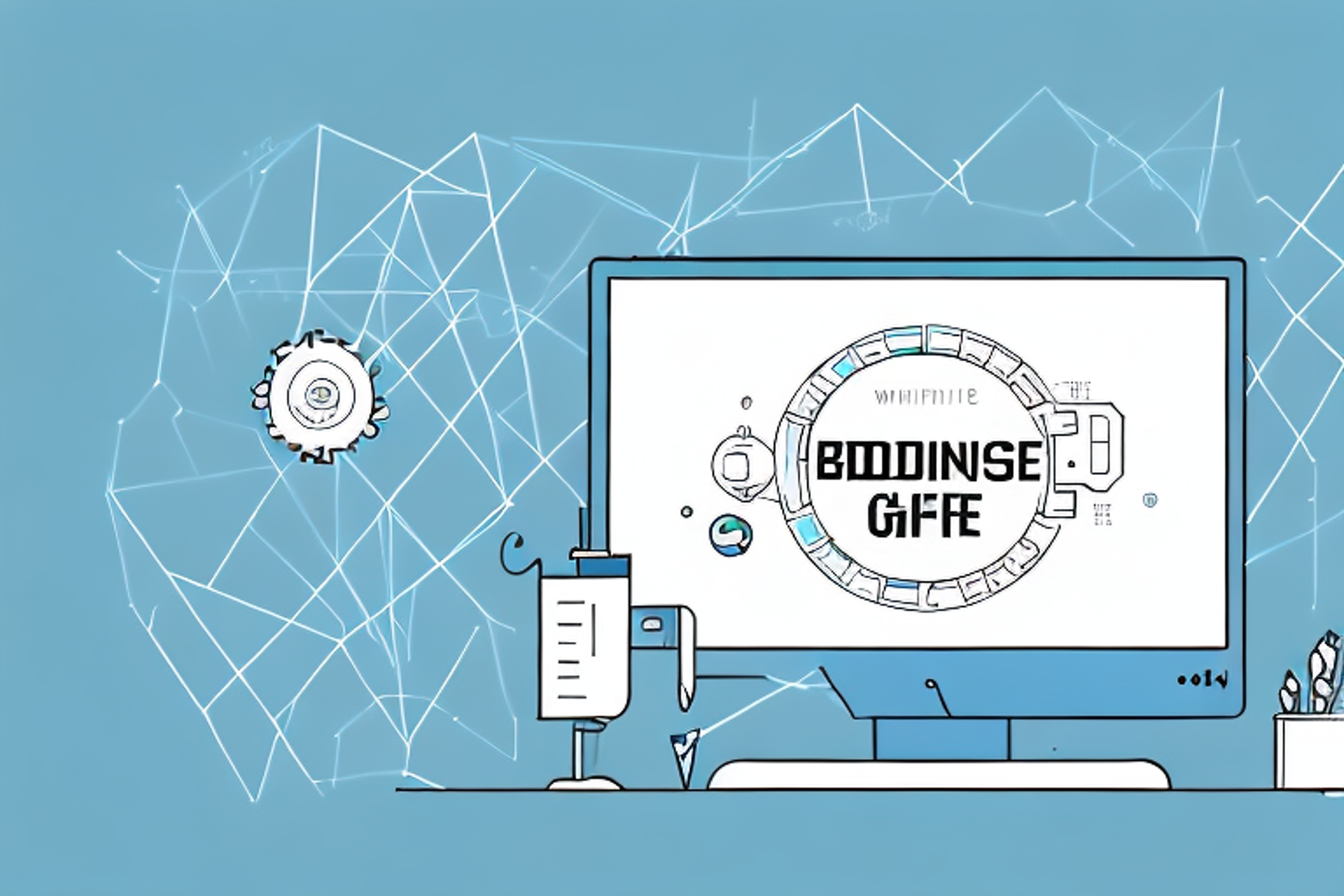How Entry Level Software Engineers Can Embrace Responsible Technology in the Digital Age
Discover how entry-level software engineers can make a positive impact on society by embracing responsible technology practices in the digital age.
Posted October 25, 2025

Join a free event
Learn from top coaches and industry experts in live, interactive sessions you can join for free.
Table of Contents
In today's digital age, it has become increasingly important for software engineers to embrace responsible technology. The growing awareness of the impact of technology on society and the environment has created a need for software engineers to be mindful of the ethical and environmental implications of their work. This article will explore the significance of responsible technology and how entry-level software engineers can contribute to this effort.
Understanding the Importance of Responsible Technology in the Digital Age
Technology is an integral part of modern-day life. It is used in every sector and has the potential to drastically improve the way we live and work. However, the responsibility that comes with this achievement cannot be ignored. The importance of responsible technology lies in the fact that every technological advancement has an impact on society and the environment.
Responsible technology is the use of technology in a way that is sustainable and socially responsible. It involves considering the potential social, economic, and environmental impacts of technology and taking steps to mitigate any negative effects. By embracing responsible technology, software engineers can ensure that their work benefits society and the environment in a positive way.
One of the key aspects of responsible technology is ensuring that it is accessible to everyone. This means that technology should be designed in a way that is inclusive and does not discriminate against any particular group. For example, websites and apps should be designed with accessibility features that cater to people with disabilities, such as screen readers and alternative text for images.
Another important aspect of responsible technology is data privacy and security. With the increasing amount of personal data being collected and stored by companies, it is crucial that this data is protected and used ethically. Responsible technology involves implementing strong security measures and being transparent about how data is collected, stored, and used.
The Role of Entry Level Software Engineers in Promoting Responsible Technology
Entry-level software engineers have a crucial role to play in promoting responsible technology. They are the ones who design, develop, and implement technology solutions, and the decisions they make can have far-reaching consequences. By being mindful of the potential impact of their work, entry-level software engineers can contribute to the development of technology that is sustainable and socially responsible.
One way that entry-level software engineers can promote responsible technology is by considering the ethical implications of their work. They should be aware of the potential risks and benefits of the technology they are developing, and strive to create solutions that are aligned with ethical principles. Additionally, entry-level software engineers can advocate for responsible technology practices within their organizations, by raising concerns and proposing alternative solutions when necessary. By taking a proactive approach to responsible technology, entry-level software engineers can help to shape the future of technology in a positive way.
Challenges Faced by Entry Level Software Engineers in Embracing Responsible Technology
Embracing responsible technology is not always an easy task, especially for entry-level software engineers. These are some of the challenges that they may face:
- Limited knowledge and experience in the field of responsible technology
- Lack of guidance and support from senior colleagues and management
- Pressure to meet project deadlines and deliverables
- Limited resources and budget to implement sustainable solutions
Despite these challenges, entry-level software engineers must prioritize responsible technology when developing software solutions.
One of the additional challenges that entry-level software engineers may face in embracing responsible technology is the lack of awareness and understanding of the impact of their software on the environment. They may not be aware of the carbon footprint of their software or the energy consumption of the devices on which their software runs. This lack of awareness can lead to unintentional harm to the environment.
Another challenge that entry-level software engineers may face is the pressure to prioritize functionality and user experience over responsible technology. In some cases, software development teams may prioritize features and functionality over responsible technology practices, which can lead to negative consequences for the environment and society. Entry-level software engineers may feel powerless to change this prioritization, especially if they are not in a leadership position.
Steps to Incorporate Responsible Technology in Software Development
Here are some steps that entry-level software engineers can take to incorporate responsible technology in their work:
- Research: Conduct research on best practices for responsible technology and become familiar with ethical and environmental standards.
- Collaboration: Work with teams and stakeholders to identify potential social, economic, and environmental impacts of technology solutions and design solutions that are sustainable and socially responsible.
- Continuing education: Participate in training and development opportunities to expand knowledge and skills on responsible technology and sustainability practices.
- Technology Selection: Choose technology solutions that are environmentally-friendly and provide sustainable options.
By incorporating these steps in their work, entry-level software engineers can contribute to the development of responsible technology.
It is important for software engineers to consider the potential consequences of their technology solutions. By conducting impact assessments and considering the long-term effects of their work, engineers can ensure that their solutions are not only effective but also responsible. This includes considering the impact on marginalized communities, the environment, and future generations. By prioritizing responsible technology, software engineers can create solutions that benefit society as a whole.
Best Practices for Entry Level Software Engineers to Ensure Responsible Technology Implementation
Here are some best practices that entry-level software engineers can follow to ensure responsible technology implementation:
- Develop comprehensive implementation plans that take into consideration environmental impact, economic feasibility, and ethical considerations.
- Use agile development methodologies that allow for the incorporation of responsible technology throughout the development lifecycle.
- Create a set of sustainability metrics to measure the impact of software solutions on the environment.
- Collaborate with senior-level engineers and stakeholders to ensure that software solutions align with company standards and vision.
- Monitor and report on progress towards sustainability goals and continually improve the development process.
By following these best practices, entry-level software engineers can ensure that responsible technology is integrated into software development projects and implemented successfully.
It is important for entry-level software engineers to also stay up-to-date with the latest developments in responsible technology. This can be achieved by attending conferences, workshops, and training sessions that focus on sustainable software development practices. By staying informed and continuously learning, entry-level software engineers can contribute to the development of responsible technology solutions that have a positive impact on society and the environment.
The Impact of Irresponsible Technology on Society and the Environment
The impact of irresponsible technology can be far-reaching and devastating. Irresponsible technology can contribute to environmental degradation, contribute to digital divides, and it can have ethical implications for people that could use the technology. It can also lead to social and economic inequalities, and may negatively affect the quality of life for some individuals and communities.
One of the major concerns with irresponsible technology is the issue of e-waste. As technology advances at a rapid pace, many devices become obsolete quickly, leading to a large amount of electronic waste. This waste can contain hazardous materials that can harm the environment and human health if not disposed of properly.
Another issue with irresponsible technology is the potential for it to be used for malicious purposes. For example, the development of deepfake technology has raised concerns about the potential for it to be used to spread misinformation and manipulate public opinion. It is important for developers and users of technology to consider the potential negative impacts and take steps to mitigate them.
Case Studies: Examples of Companies Implementing Responsible Technology Policies
Many companies are taking proactive measures to implement responsible technology policies. These companies are fully embracing their responsibility in creating sustainable and socially responsible solutions. Here are some examples of companies who are currently implementing responsible technology policies:
- Google - Google offsets their carbon usage while focusing on environmental sustainability.
- Microsoft - The company has set aggressive targets for the reduction of their carbon footprint and become carbon negative, thus making the company a net zero overall by 2030.
- Panasonic – In collaboration with Tesla, it has released a range of lithium-ion batteries for commercial and residential use that store solar energy.
The Future of Responsible Technology in the Digital Age and How Entry Level Software Engineers Can Contribute
As technology continues to advance, responsible technology will become increasingly important in the digital age. Entry-level software engineers play a critical role in shaping the future of technology. They must stay current on the latest responsible technology practices and make a positive impact on society and the environment through their work. Entry-Level Software Engineers can contribute to responsible technology by participating in training opportunities, staying up-to-date with current sustainability practices, and partnering with senior-level engineers and stakeholders in the decision-making process.
Resources and Tools for Entry Level Software Engineers to Learn and Implement Responsible Technology Principles
Here are some resources and tools that entry-level software engineers can use to learn and implement responsible technology principles:
- Green Software Foundation - Green Software Foundation is a non-profit organization focused on improving software's environmental impact.
- Sustainable Software Engineering Book – A guide that provides practical approaches and methods for software engineers to implement sustainable software practices.
- Sustainable Software Ecosystems Book – An analytic toolkit for software professionals and engineers to analyze sustainable software development.
Conclusion
Responsible technology is a crucial part of the digital age. Entry-level software engineers play a critical role in shaping the future of technology. By embracing responsible technology practices, they can ensure that their work benefits society and the environment in a positive way. By following the steps outlined in this article, entry-level software engineers can integrate responsible technology practices into software development projects and contribute to the evolution of technology that is sustainable and socially responsible.
Read more here:

























